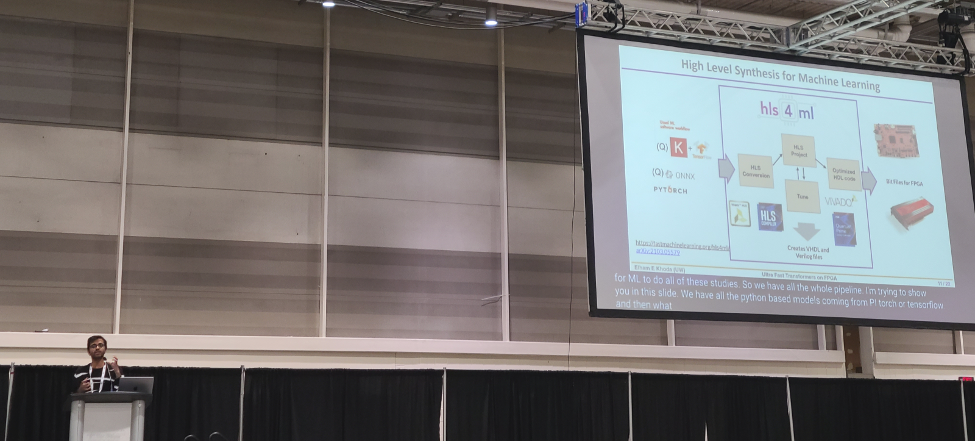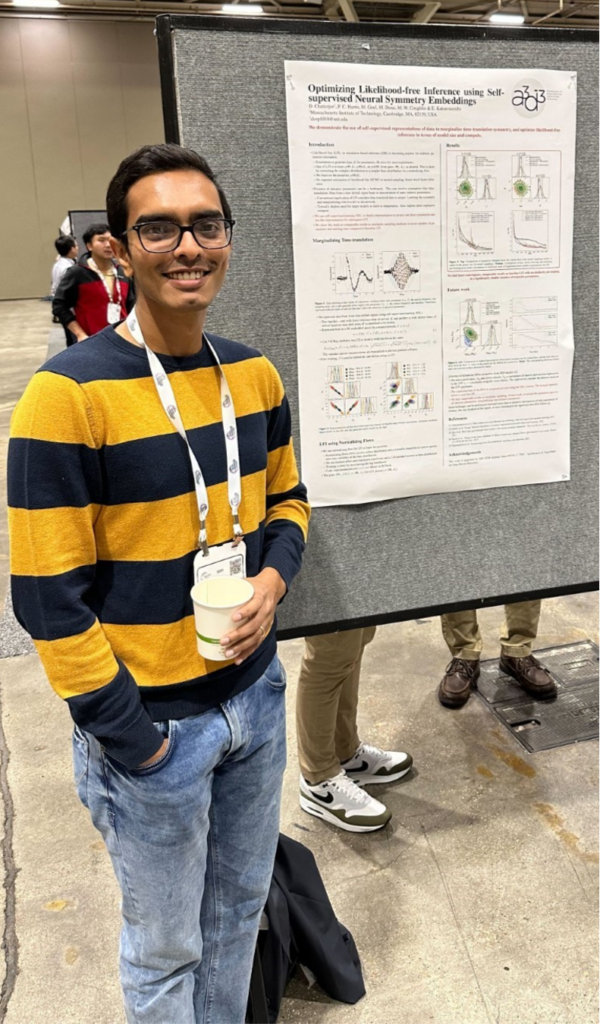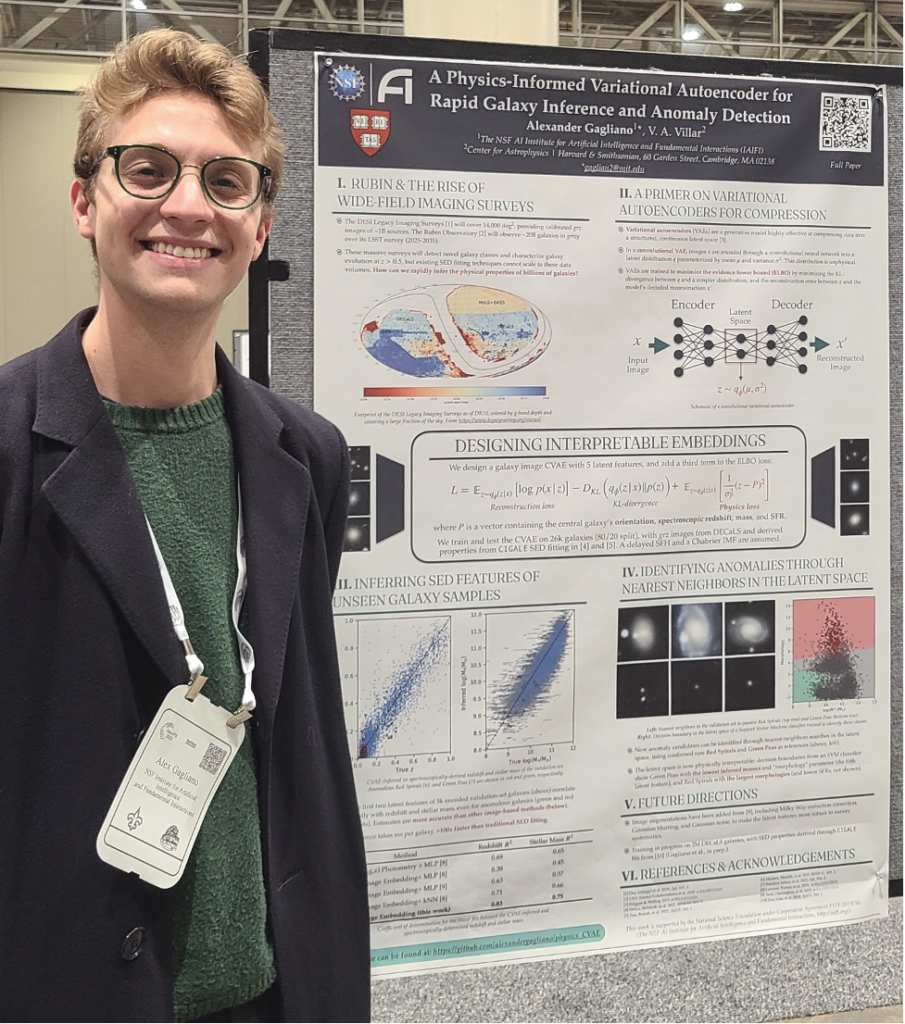A3D3 shows up big at NeurIPS
By: Deep Chatterjee
December 27, 2023
New Orleans, LA – The 37th Conference on Neural Information Processing Systems was held in New Orleans between Dec 10 – 16, 2023. The Machine Learning and the Physical Sciences Workshop at NeurIPS brought together researchers pursuing applications of Machine Learning techniques in Physics, and developing new techniques based on physical concepts like conversation laws and symmetries. There was a total of 250 accepted papers for the workshop poster session – both in-person and remote. While most papers were related to Physics and Astronomy, there were several papers on applications in medical sciences, material science, and earth sciences. A3D3 had a prominent presence at the workshop, with a contributed talk, 4 papers from A3D3 members, and 2 papers from A3D3 Steering Board committee members’ team.
Elham E Khoda from UW Seattle presented on the implementation of Transformers on FPGA using HLS4ML, for low-latency applications like L1 triggers at the LHC and ATLAS, and searches for anomalous signals in gravitational-wave data.

Elham Khoda presents a contributed talk on the implementation of transformers in HLS4ML
Deep Chatterjee from MIT presented a poster on optimizing likelihood-free inference by marginalizing nuisance parameters using self-supervision. [paper link]
Niharika Sravan from Drexel University presented Pythia – a reinforcement learning model that maximizes the search for kilonovae in the presence of several contaminant objects from the Zwicky Transient Facility. [paper link]
Anni Li from UCSD gave a poster on Induced Generative Adversarial Particle Transformers on the use of induced particle-attention blocks to surpass existing particle simulation generative models. [paper link]


Deep Chatterjee (left) and Alex Gagliano (right) present posters.
There were two posters presented from A3D3 steering board members. Ashley Villar (along with Alex Gagliano) gave a poster on convolutional variational autoencoder to estimate the redshift, stellar mass, and star-formation rates of galaxies from multi-band imaging data. [paper link] Nhan Tran (along with C. Xu) have a poster on a Proximal Policy Optimization (PPO) algorithm to uniform proton beam intensity for the Mu2e experiment at Fermilab. [paper link]
